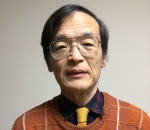Hi there!
Today, I want to share two interesting examples of how news can be accidentally misleading or perhaps intentionally distorted.
Example 1: A Tricky Translation I was watching NHK (Japan’s national broadcast), and they reported on a speech by Ms. Tsai from Taiwan. The news said she talked about Taiwan being under “threat” from China. But when I checked the original speech, I found she actually said Taiwan was under “assault” from China. These words are very different! “Threat” means a possibility of danger, but “assault” means a real physical attack.
I worry NHK might be softening its stance towards China, a growing superpower near Japan.
Example 2: A Confusing Explanation Surprisingly, I found another misleading report on the same NHK program – a show about fake news! The host was talking about a social media post by a Republican supporter. The post said Democrats “can control the weather.” But the Japanese explanation made it sound like Democrats were actually controlling the weather.
I hope NHK isn’t compromising its objectivity to be diplomatic to the current American administration.
Why does this matter? These small changes can completely change the meaning of news. Luckily, I could check the original information in English and spot these differences.
A good tip: If you can, always try to find the original source of information. Learning English can help you do this!
私立学校に英語教師として勤務中、40代半ばに差し掛かったころ、荒れたクラスを立て直す策として、生徒に公言して英検1級に挑戦することを思い立つ。同様の挑戦を繰り返し、退職までに英検一級(検定連合会長賞)、TOEIC満点、国連英検SA級、フランス語一級、スペイン語一級(文科大臣賞)、ドイツ語一級、放送大学大学院修士号などの成果を得る。
アメリカで生徒への対応法を学ぶ為に研修(地銀の助成金)。最新の心理学に触れた。4都県での全発表、勤務校での教員への研修を英語で行う。現在も特別選抜クラスの授業を全て英語で行っている。「どうやって単語を覚えればいいですか?」という良くある質問に答える為、印欧祖語からの派生に基づく「生徒には見せたくない語源英単語集」を執筆中。完成間近。常日頃洋書の読破で様々な思考にふれているが、そうして得た発想の一つを生かして書いた論文がコロナ対策論文として最近入賞。賞品の牛肉に舌鼓をうっている。元英検面接委員



